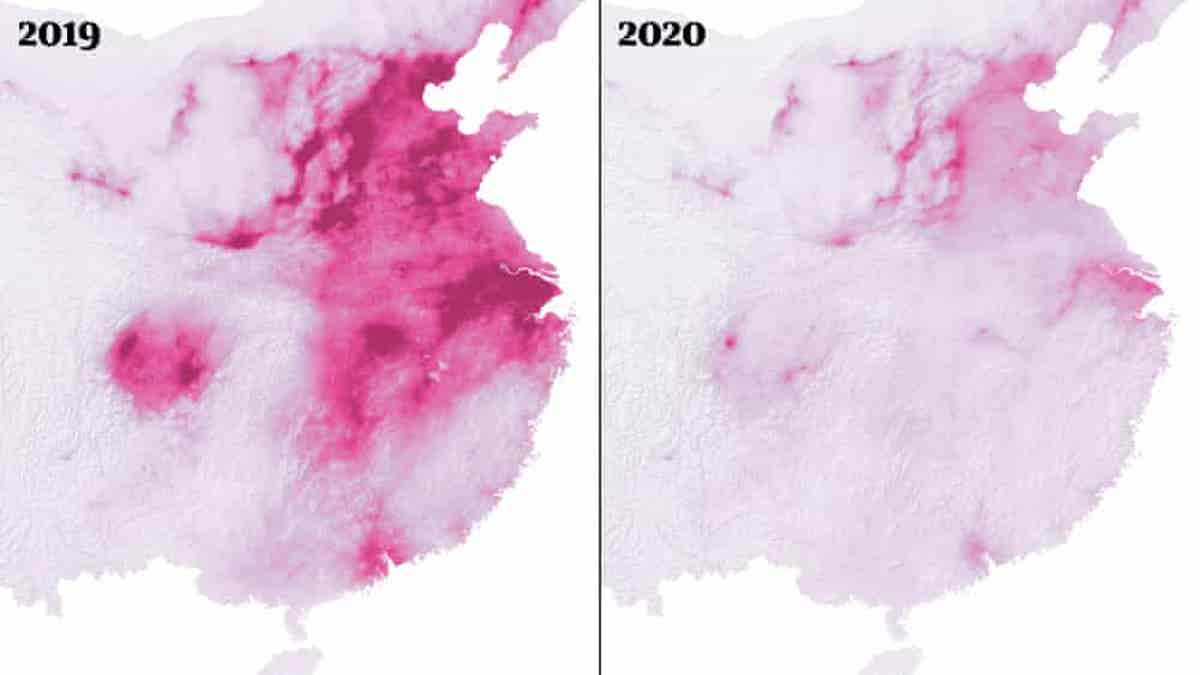How stay-at-home orders impact small businesses
Gene Marks of The Marks Group joins Arthel Neville to discuss how small businesses are being impacted by the coronavirus shutdowns.
Get all the latest news on coronavirus and more delivered daily to your inbox. Sign up here.
Quarantines and “stay-at-home” orders have led to a decrease in air pollution, according to scientists.
With the sharp decline in industrial productivity and travel, the global carbon footprint has fallen as well.
CLICK HERE FOR FULL CORONAVIRUS COVERAGE
In the U.K., the National Centre for Atmospheric Science found drops in tiny particle pollution of a third to half in London, Birmingham, Bristol and Cardiff, with smaller declines in other cities such as Manchester, Belfast and Glasgow.
Nitrogen dioxide pollution has also declined at similar rates. NO2 is produced from car engines, power plants and other industrial processes.
“The air is definitely much healthier,” said Professor James Lee at York University and the NCAS, who analyzed the data. “These are big changes – pollution levels are the equivalent at the moment of a holiday, say an Easter Sunday.”
“And I think we will see an even starker drop off when the weather changes.”
“There is no silver lining to the COVID-19 situation,” he added. “But I think that it shows we can actually achieve quite a lot without traveling. It shows that if we did work from home more in normal times then we would have an effect on air pollution.”
MOSCOW INITIATES CORONAVIRUS LOCKDOWN
Paul Monks, professor of air pollution at the University of Leicester, called the sudden shift the “largest scale experiment ever” in terms of reduction of industrial emissions.
Readings from the European Space Agency’s Sentinel-5P satellite confirm drops in NO2 in cities across Asia and Europe that match those of the U.K.

Comparison of pollution levels in China between 2019 and 2020 (Guardian Visuals / ESA satellite data)
Earth Systems Professor Marshall Burke used data from U.S. government sensors in four Chinese cities to calculate the benefits of the reductions and posted his findings on G-Feed, a blog maintained by scientists working on Global Food, Environment and Economic Dynamics.
He concluded that two months of pollution reduction “likely has saved the lives of 4,000 kids under 5 and 73,000 adults over 70.”
CLICK HERE FOR THE FOX NEWS APP
“It seems clearly incorrect and foolhardy to conclude that pandemics are good for health,” he said. “But the calculation is perhaps a useful reminder of the often-hidden health consequences of the status quo, i.e. the substantial costs that our current way of doing things exacts on our health and livelihoods.”

